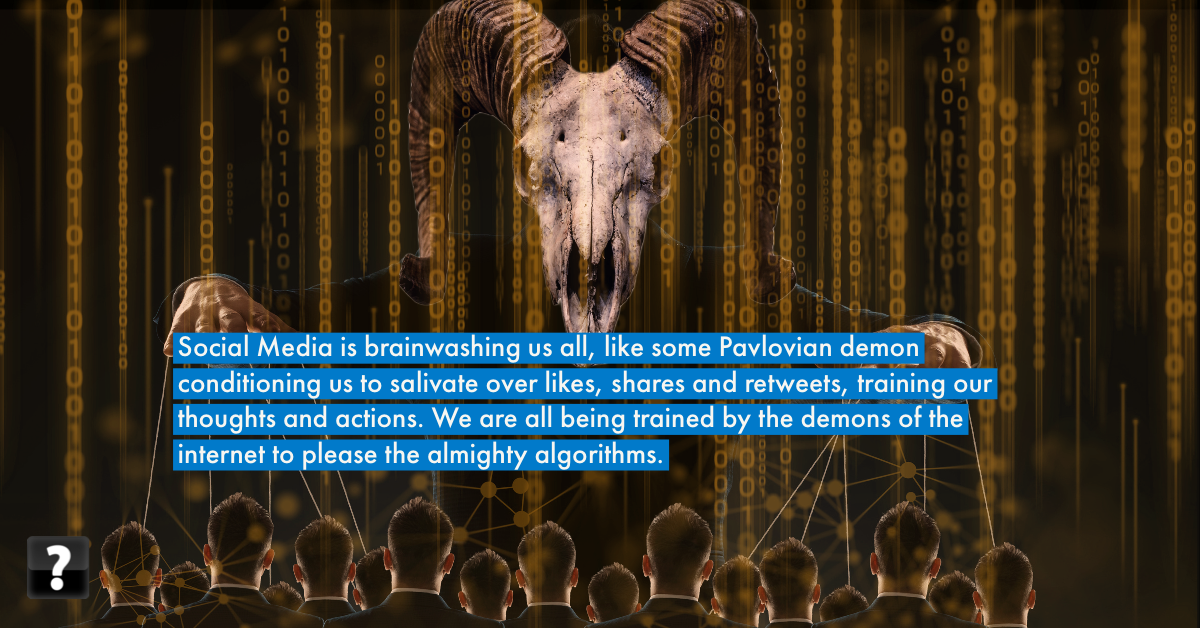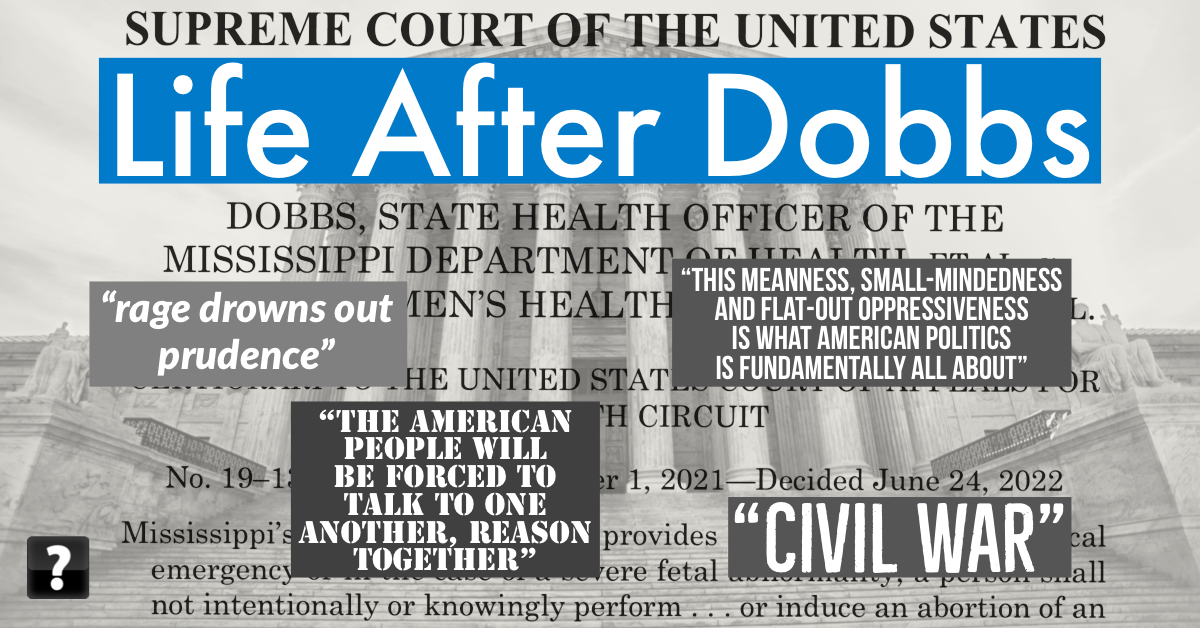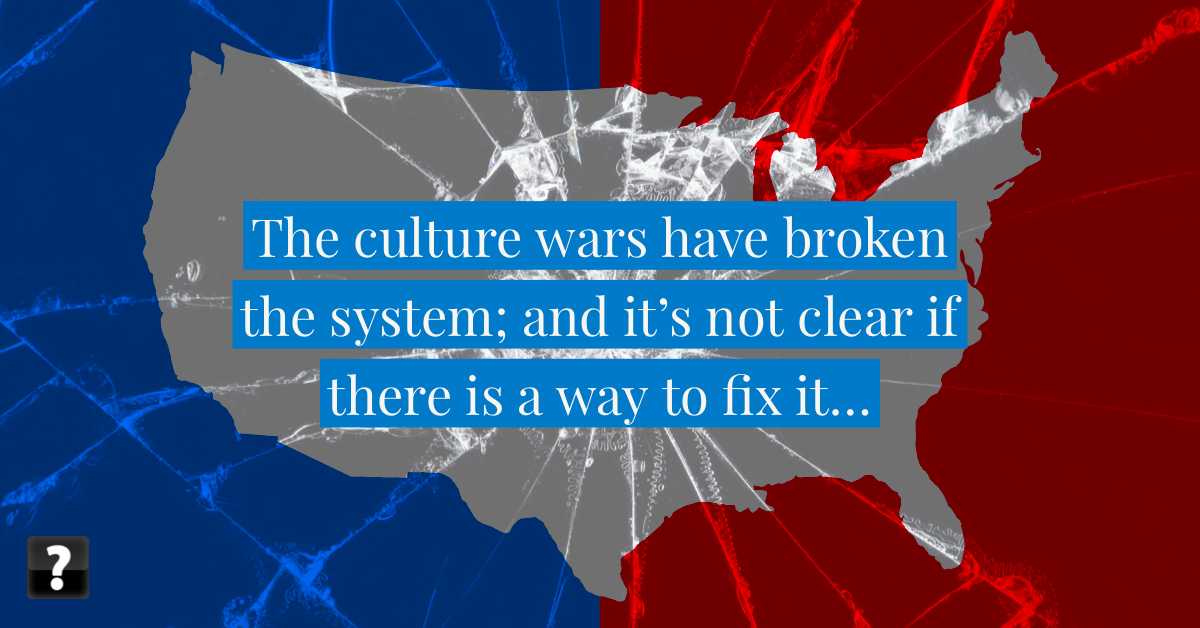So it’s official. Roe is no more. The next phase of this long running culture war starts. There will be reams of analysis and plans and emails filled with both righteous indignation and celebratory zeal… and, of course, pleas to donate money to the fights to come.
The court is supposed to rule on constitutionality of things. But both sides of this fight know that this was pure politics. The result of years of political maneuvering, scheming and massive spending by a minority over years to win a verdict that does not reflect will of the American public. The fact is, most Americas wanted the status quo to remain the law of the land. Fivethrityeigtht [fivethirtyeight.com] has a good summary of where people actually stand, it’s a nuanced topic, as most things are but the headline is clear; a large majority of Americans wanted things to stay as they were. The will of the majority lost to the zeal of the minority. The tyranny of a minority restricting the rights of all. Why? How?
Two things that people should learn from this:
- The opinions of the majority matter little to those fighting the culture wars
- Long term planning and focus pays off
So many Americans believe in conspiracy theories; Q-anon, Lizard people, satan worshiping pedophiles, the illuminati and much more. The truly bazaar thing is that there is a clear cabal of shady types running the US right in front of us, no conspiracy theories required: lobbyist, PACs, special interests.
These groups rely on the fact that you and I are too busy putting food on the table, working for a that promotion, helping the kids with their homework, living our life. They are laser focused on their issue, full time.
These group, and the power they have have over politics, have destroyed democracy in America. Our government does not reflect what people actually think and want. They have learned to game the systems through the time and money they put into pursuing their chosen cause; their crusade, their jihad. They have corrupted the system.
The pro-gun and anti-abortion fanatics have pushed there agenda for so long, and they have become so effective at it, that they managed to shift laws away from the view of the majority and to the extremists. They turned congress into a waste of time, the presidency into a sad reality show and the courts into… something.
Their goals are not supported by a majority of Americas and yet they have been so effective for so long at crushing anyone who opposes them they have eliminated cooperation and compromise and left obstruction and intransigence in their place.
They succeed with long term planning and focus. Special interest groups holding extreme views are not unique to the conservative side of politics —the liberal side has it’s own extreme views that are only supported by small vocal minorities— but they have been at it longer and playing a long game. Anti-abortionists started the work to overturn Roe immediately after it became the law of the land. For most of the past 50 years. While of America thought of abortion as a settled issue, they planned, they maneuvered and they fought to get their way with single-minded focus. No doubt opportunistic politicians “used” the causes and their supporters to advance their careers, but in the end they were only thinking short term, the anti-abortionists were in it for the long term. They remember and they call in their favors.
The gun nuts perfected the art of political assassination, how appropriate. Taking out any politician who crossed them. Breeding spineless politicians who won’t stand up to them for fear of it ending their career in the next primary.
The anti-abortionists and the pro-gun cabals captured the politics, gaming the system of primaries and caucuses to push their extreme positions. My mobilizing their one-issue voters in the primaries, before the majority of people were even involved in an election, they shifted the whole field to the extremes. After the primaries the winners “pivot to the center” to win votes but they were still beholden, for re-election to the extremists, who watch and remember. Extremists on the left learned from this and have used the same tactic to push their party further from the center, but they lack the longevity of the conservatives.
The end result is we are all fucked, the long term planning and laser focus of the extremist minorities on the left and right have eviscerated American democracy. There is no more room for politics, no compromise or common ground. The parties have been pushed so far apart that they have become unable of governing.
The extremists have built an unassailable position; they have burned system down on their way to success. By gaming the system they have broken the system, we have fallen into their trap, electing politicians who are so far to the extremes that all they can do in Washington is scream insults back and forth across the aisles.
They destroyed congress, they destroyed the presidency and they have destroyed the supreme court.
I don’t see how we will fix the system from within the broken system. How do you ever overcome the gerrymandering, lobbying, career politicians, PACs, and the apathy? I’d say vote, but I can’t see how voting will fix it… the extremist will kill any candidates who want to work with the other side, it to big a risk to their agenda. Its a zero sum game that only leads to more and more extreme positions.





